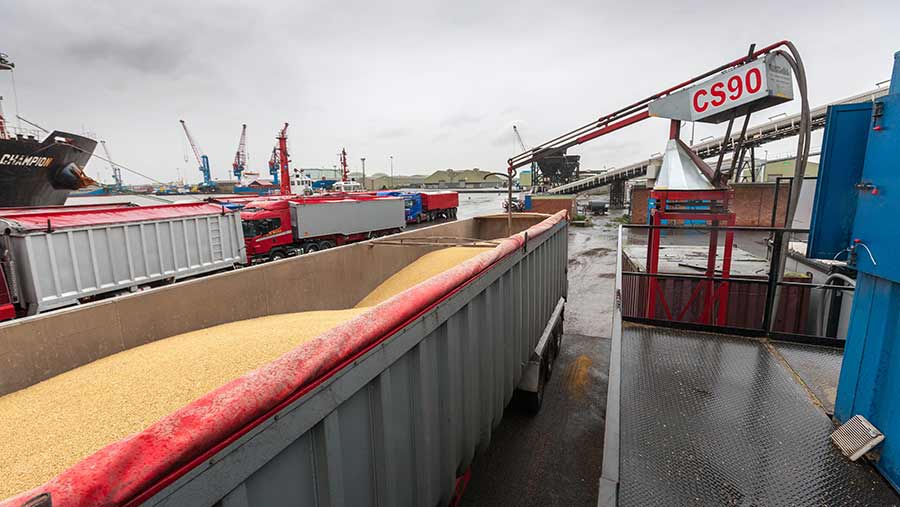Reject EU ban on GM imports, government warned
 © Tim Scrivener
© Tim Scrivener Industry leaders have issued a report calling on the government to reject a proposed EU law which allows member states to ban genetically modified food and feed imports.
The report, Going against the grain, was launched in Parliament on 29 October by five industry organisations.
It highlights the potentially devastating impact the proposed legislation could have on British dairy and livestock production.
See also: GM oilseed rape to be destroyed after unintended importation
The law is predicted to disrupt supply and demand of GM feed within the EU, with insufficient volume of non-GM feed currently available to meet any extra demand.
This would lead to significant increases in feed costs for farmers and have a knock-on effect for consumers, causing price hikes for staple foods such as milk, eggs and bacon.
Going against the grain – top findings
- An EU-wide import ban for GM soya beans would cost the EU economy €26.1bn (£18.7bn).
- Without access enjoyed by producers elsewhere in the world, the UK and EU livestock sector will be less efficient and less likely to be the supplier of livestock products to the UK and EU consumer. This also risks research and development being held back.
- €9.6bn (£6.9bn) – the total forecast cost to the European economy as a result of unduly delayed GMO import authorisations and the resulting trade disruptions.
- Prices for non-GM soya for feed are already at a premium. Further costs associated with nationalisation proposals would mean further price rises for UK farmers and any price pressures in primary production will affect the onward food supply chain. Ultimately consumers will pay more.
- 600% – the estimated increase in feed expenditure in the event of a two-year import interruption if non-EU approved GM soya beans were cultivated in the US, Argentina and Brazil.
The number one protein source for poultry and livestock in the EU is soya imported from North and South American countries, where the uptake of GM technology is about 90%.
Used in livestock feed rations, it provides UK farmers with a cheap plentiful source of protein that is about 70/t less than non-GM soya and it is estimated a ban could heap an extra £300m in feed costs on an already struggling industry.
Despite the European Parliament voting overwhelmingly against the legislation yesterday, Agricultural Biotechnology Council (ABC) chairman Julian Little told Farmers Weekly: “It is by no means finished.”
The European Commission said it would not withdraw its proposal. As a result the Parliament voted in a motion for an alternative plan, so a “tweaked” version could still be accepted.
“We are calling for the UK government to listen to its farmers, food producers and scientists to continue its sound approach and resist marginal political interference,” said Dr Little.
Paul Temple, farmer and chairman of the AHDB cereals and oilseeds board, said that farmers are already under immense pressure to produce more for less and could not be expected to achieve this if denied access to cheap feed.
“If affordable imports are banned, how will I be expected to feed my cattle?
“There isn’t enough non-GM feed grown in the UK to meet demand and the prices will push up costs for all, including consumers, and risks driving some farmers out of business,” added Mr Temple.
The report has been endorsed by five organisations from across the UK food chain, including the ABC, NFU, Agricultural Industries Confederation, Grain and Feed Trade Association and British Egg Industry Council.
It also called on the government to support an evidence-based approach to biotechnology and to continue to take a lead on the issue within Europe, while seeking allies to support the UK position.
Farm minister George Eustice responded to the report by saying the impact of any such legislation would be “profound” and undermine the single market – one of its basic principles.
He also echoed the report’s findings that disrupting the European feed supply chains would have obvious cost implications for the UK farming industry.
“Any departure from the EU’s current scientific approach to GM would send a worrying signal to industry,” he added.

